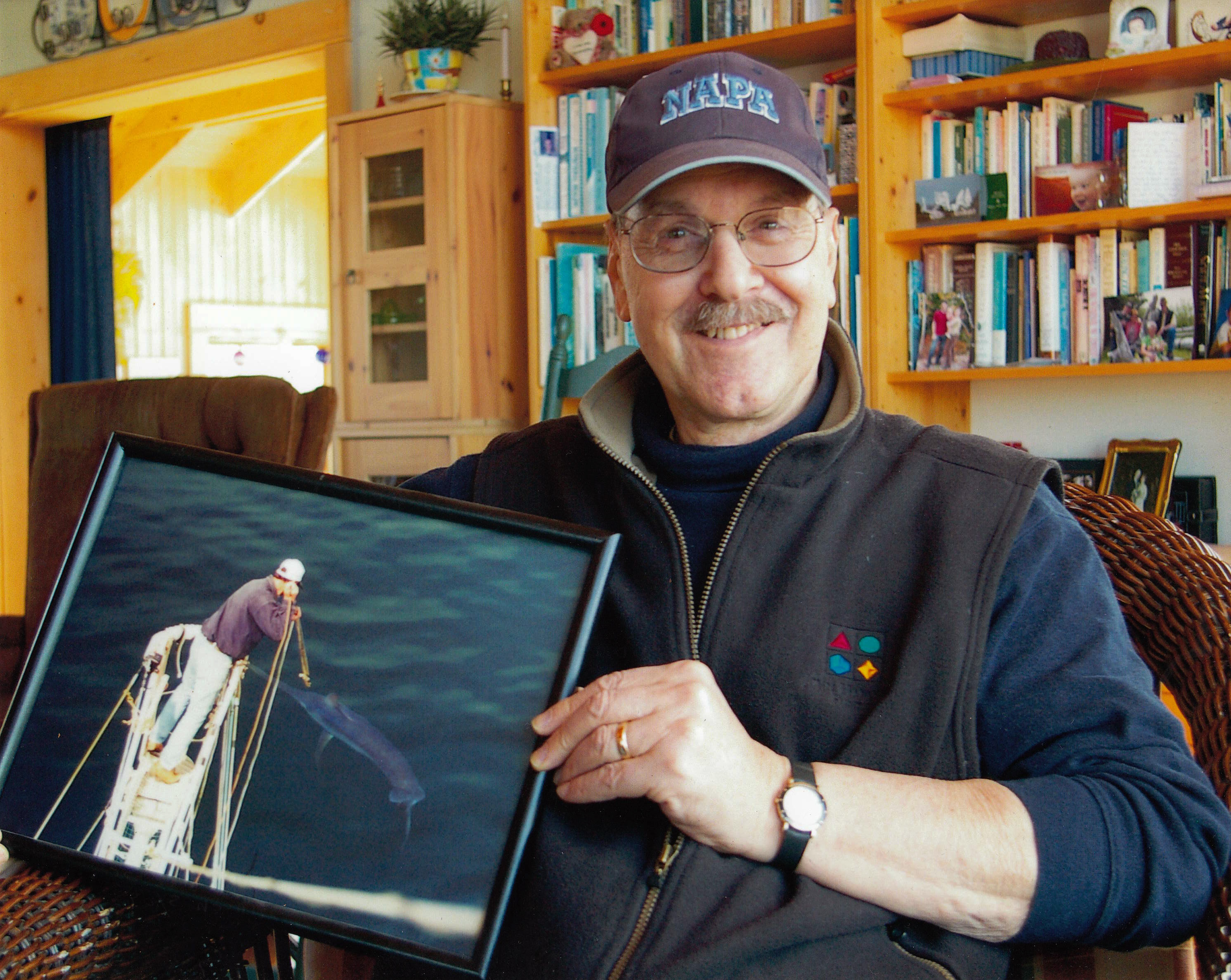The cry would go out from the masthead. The striker would dash to the pulpit and somewhere out on the edge between New York and Nova Scotia a swordfish would be harpooned.
While Franklyn d’Entremont of Lower West Pubnico, Nova Scotia, was never a household name, in the New England and Maritime harpoon swordfish fishery he was a superstar. His passing last summer at the age of 78 is worthy of mention.
Franklyn. There was only one. Most swordfish fishermen knew him by that one name, his gravelly voice and Acadian accent on the VHF, and his sense of humor. “I bring you guys out here and show how to do this, now you give me the shitty end of the stick,” he said one day to the Canadian fishermen he had helped into the fishery.
“I’ll tell you a story about Franklyn,” says Jim Crawford, a former spotter pilot and masthead man in the harpoon fishery. “When Ted Malley of Scituate, Massachusetts and his brother Tim convinced him to run their boat, he went down there below the Cape [Cod] and harpooned 223 fish in 5 days. And that was in May, before any of us were rigged up yet.”
Everybody knew that nobody knew swordfish like Franklyn. “He knew if it was blowing southwest on a corner of Browns [Bank] you wouldn’t get fish there,” says Crawford. “I made a few trips with him. He called me down from the mast one day. ‘Come on down,’ he said. ‘There won’t be any fish until the tide turns.”
In harpooning swordfish, once a fish was “ironed” a crewman would throw over 100 fathoms of line attached to some buoys and a highflyer, and the fish would be picked up later, usually while it still had some life in it.
“He knew the tides,” says Crawford. “He’d harpoon 40 fish between Browns and the Northern Edge [of Georges Bank], pick them all up at night, and be ready to go next day.”
While it’s common for some fishermen to become mythologized after death, with Franklyn there’s no need, in fact, the stories need to be constrained. He was among the greatest in a U.S. and Canadian fishery that has gone extinct on the U.S. side of the Hague Line.
He deserves a farewell from those who knew him, and anyone who respect that sixth sense that has always defined successful fishermen.







